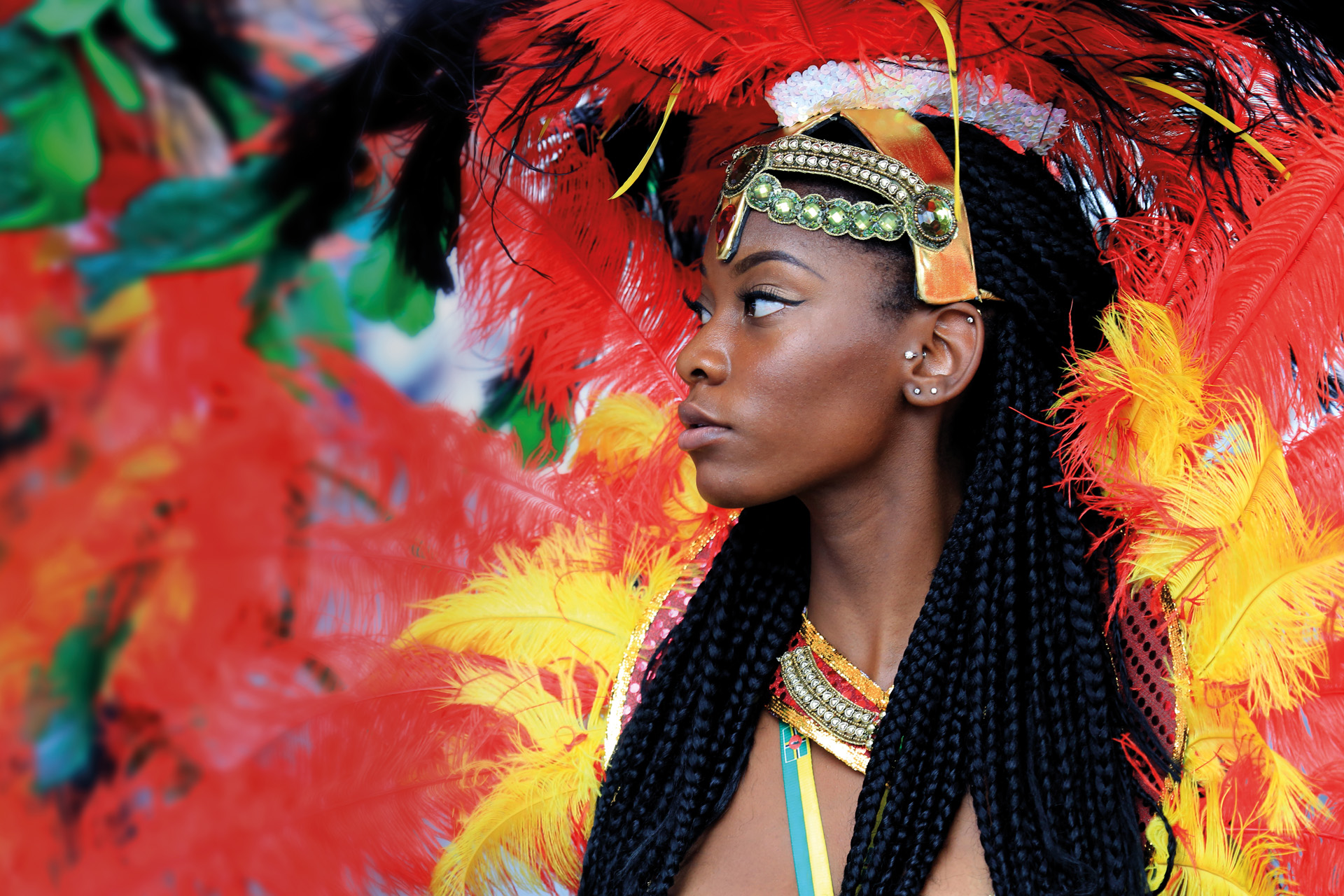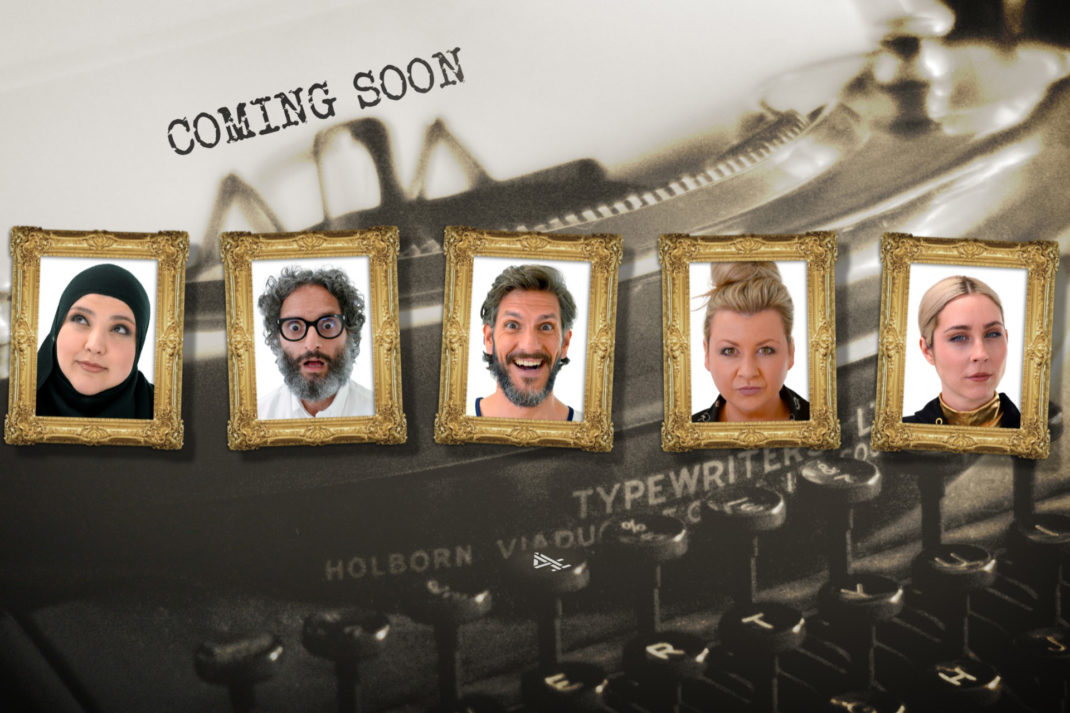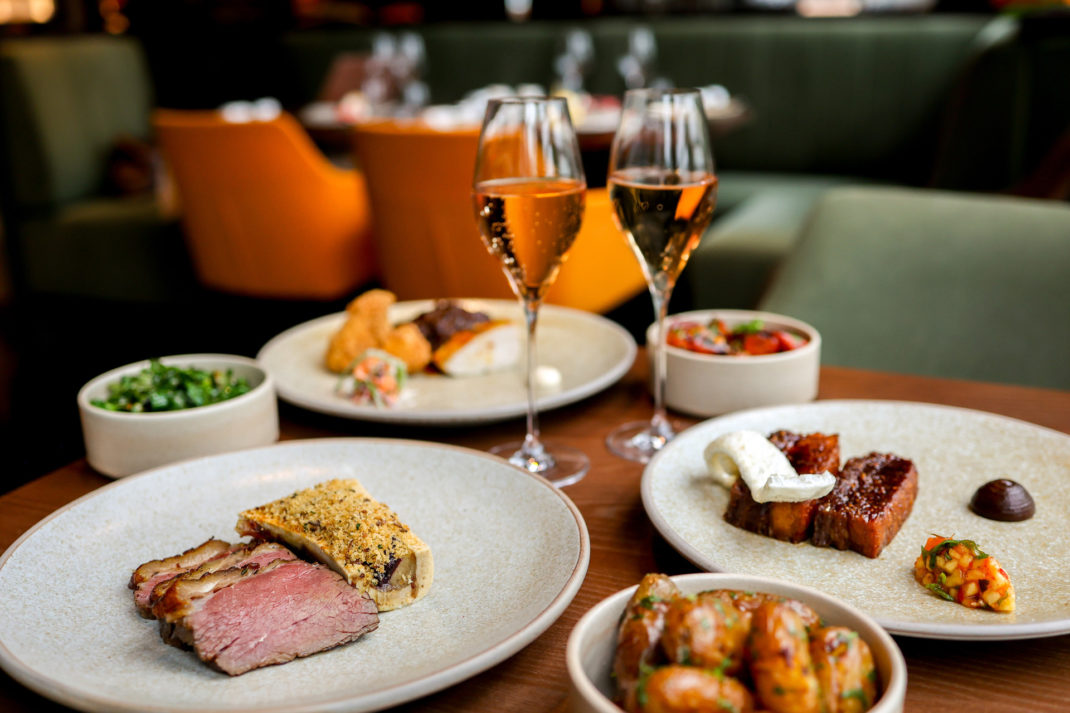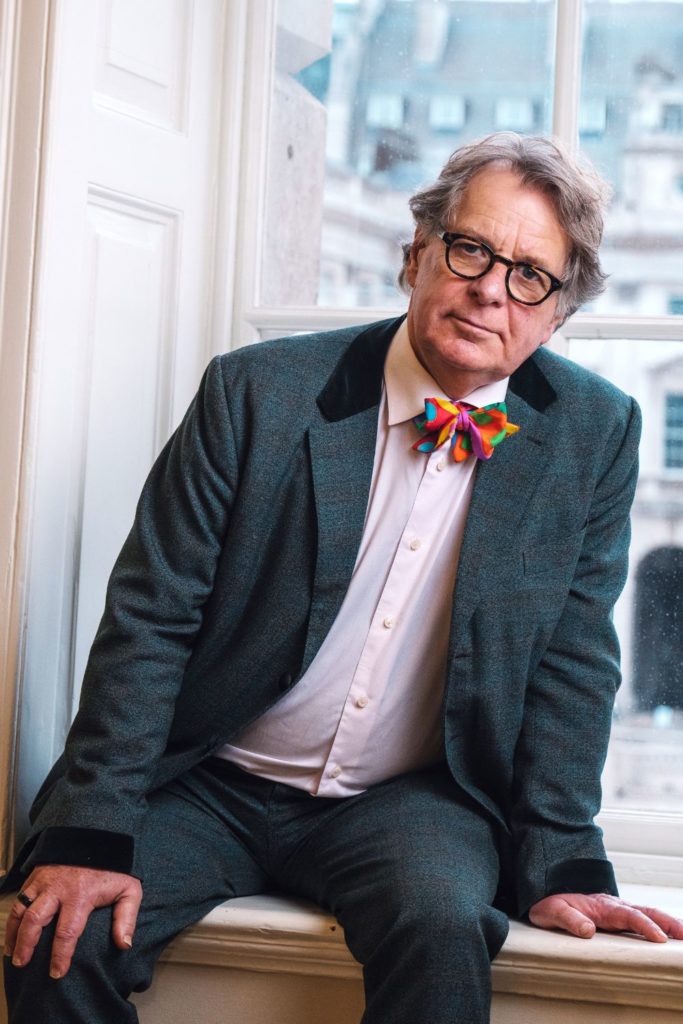Shared Spaces & Cultural Traces: How Immigration Has Helped Britain Thrive
By
1 year ago
‘From ai to cybersecurity to fintech and food, the founders or co-founders of nearly half of the UK’s start-ups are drawn from 28 countries and five continents’

Despite the toxic rhetoric that fills the airwaves and political speeches around migrants and immigration, Britain has thrived not in spite of but because of its melting pot of cultures. Kamin Mohammadi, herself a child migrant, shines a light on the people that help make up Britain’s colourful cultural fabric.
How Immigration Has Helped Britain Thrive

When Vogue editor-in-chief Edward Enninful arrived in London from Ghana in 1985 as a child, it would have been unimaginable to think that this child fleeing a coup d’état in his own country would one day head up the world’s most established, exclusive and influential fashion magazine. But he grew up around the ethnically diverse Notting Hill area, whose carnival every summer brings more than a million people to the capital for this festival of Caribbean culture – a melting pot of ethnicities that has brought together all races in positivity long before multi-cultural was a buzzword, a celebration of our common humanity in the face of political tensions. So perhaps it’s no surprise that, four decades later, Enninful’s reign at Vogue has cemented a fact that has long been true: immigration has deep roots in Britain and it is this contribution to the melting pot that is the UK that helps make Britain great today.
In 2021, the Migration Observatory, attached to the University of Oxford, released figures stating that 14.5 percent of Britain’s population is made up of people born outside of the UK, some 9.5 million people. That figure doesn’t include the very many second-generationers, born to parents who migrated to this country and who are now leaving their mark on the culture. And while migrants make up under 15 percent of the population, they lead the field in terms of innovation and entrepreneurship: 39 percent of Britain’s start-ups have at least one immigrant co-founder. From AI and cybersecurity to fintech and food and drink, the founders or co-founders of nearly half of this country’s start-ups are drawn from 28 countries and five continents. The worlds of fashion, food, art and design are threaded through with immigrant success stories, making it impossible to deny the positive contribution of migrants.
But this is nothing new. Immigration has been a part of British life and identity for hundreds – if not thousands – of years. From the French Huguenots who fled 18th-century Europe to set up textile factories in the East End and the Jewish immigrants who came between the 1880s and 1914, to the Indian, Pakistani, Bangladeshi and Caribbean migrants who arrived throughout the 20th century, immigrants have been responsible for some of Britain’s most cherished brands. Marks & Spencer is a case in point, started in 1884 by Michael Marks, a Jewish refugee from Belarus (formerly part of Russian Poland), as is footwear brand Dune, founded in 1992 by Daniel Rubin, the grandson of a Russian Jewish migrant from Lithuania who settled in London in the 1890s and eventually set up his shoe-making factory in the East End.
Enninful’s story reflects my own. When my birth country, Iran, went through a violent revolution in 1979, my family had to flee for our lives. Arriving shell-shocked in London aged nine, I have never forgotten the sheer terror of standing at the immigration booth at Heathrow, where an officer assessed whether we could enter the country or be sent back to Iran to die. The stamp that decided our fate hung in the air, the sound of it thumping onto our passports a blessed relief, a reprieve from a death sentence. That sound marked the beginning of my falling in love with Britain. Britain was our haven. It gave us all the things that I now cherish – most of all a sort of benign indifference that allowed us to live in peace. To be ourselves. Britain in 1979 was not the shiny multi-cultural place it is now and we experienced plenty of racism, but it never occurred to us to mind or complain. We were political refugees and, like the thousands pouring into Europe today, we were just grateful to be here. In the years since, I have been absorbed into this country, this culture, and I have been proud of that. Britain gave us freedom, not just to sleep safely in our beds at night, but also freedom of thought, speech and fashion. British fashion is the most exciting in the world and many of the designers and creatives bringing buzz are immigrants themselves or children of migrants.
Second-generation British-Iranian Paria Farzaneh’s eponymous menswear label has been wowing critics alike since launching in 2017, leading to selection as one of the British Fashion Council’s Newgen recipients in 2019, a nomination for the LVMH Prize 2019, and extensiv e collaborations with Converse. Her aesthetic, fabrics, prints and shows always reference her Persian culture, born of being ‘the five percent minority’ in the Yorkshire village where she grew up.

Grace Wales Bonner uses her mixed-race heritage to draw inspiration for her collections.
Similarly, Grace Wales Bonner, founder of Wales Bonner and recipient of the LVMH Prize in 2016, uses her mixed-race heritage as inspiration for her collections. Born in south London to an English mother and Jamaican father, Wales Bonner’s work challenges representations of black male identity through her use of craftsmanship and embellishments. Her talents have not been confined to the catwalk: in 2019 she was part of a show at the Serpentine Gallery and her numerous prizes in the world of fashion were topped by an MBE for services to the industry in 2022.
Bianca Saunders, another menswear designer, was named by Forbes magazine in its 2020 ‘30 Under 30’ list and named as ‘one to watch’ by the British Fashion Council in 2018. She won a place in its Newgen programme in 2020, and the Andam Prize in 2021. Hailed as ‘one of British menswear’s most high-wattage stars’, Saunders credits her upbringing in London’s Jamaican community as her main influence, particularly the band that her uncles formed.
Also inspired by the music of her youth, Ahluwalia’s creative director, Priya Ahluwalia, draws on her Nigerian and Indian heritage, and upbringing in London, to present collections that are sourced responsibly and use sustainable manufacturing methods. She insists that it’s her heritage that inspires her to explore the potential of vintage and surplus clothing, giving existing fabrics new life through textile techniques that she learned from her mixed heritage.
Supriya Lele, whose womenswear label received the LVMH Prize in 2020, says: ‘My work and process is deeply rooted in exploring my British- Indian heritage through a contemporary and modern lens.’ Her sophisticated, feminine clothes are beloved of the likes of Rihanna.

Dua Lipa
The phenomenon that is Dua Lipa was born in London to Kosovan–Albanian parents. The three-time Grammy award-winner is also the founder of Service95, the editorial platform which includes a newsletter, a podcast and book club. Started in 2021 during the pandemic, Lipa was inspired to provide the same ‘service’ to her fans as she has always given to her friends and family, giving them lists of cultural content, beauty recommendations, tips on books, travel and food, and, perhaps most passionately, issues of social justice with particular interest in women’s rights and mental health. As the world of traditional media shrinks, Lipa’s Service95 continues to grow, its newsletter translated into many languages and sent out to hundreds of thousands of people across the world. A passionate reader, Dua Lipa’s keynote speech at 2022’s Booker Prize mentioned how books helped her to navigate her dual nationalities and mused: ‘I often wonder if authors realise just how many gifts they give us.’
Writer and multi-disciplinary artist Osman Yousefzada’s own gift to the culture has been his critically acclaimed memoir The Go-Between, which describes his childhood in 1980s Birmingham within a traditional and closed Pakistani-Afghan community. He has exhibited his art at the V&A, the Whitechapel Gallery and Charleston, among many other – his pieces focusing on the immigrant experience, and inviting a conversation around the themes of migration, refuge and how those spaces are occupied.
Reimagined spaces inform the runaway success of the Iranian street- food restaurant Berenjak, both in Soho and a new branch in Borough Market. The brainchild of British-Iranian chef Kian Samyani, the tiny Soho eatery has queues outside every night five years after opening. Samyani was inspired by his childhood visits home to Iran, where the kebab shops of Tehran served simple skewers to workers. ‘Just down the road from our family’s townhouse was a hole-in-the-wall kebab shop,’ recalls Samyani. ‘I would always go missing from the house and my family would find me at the shop, chatting with the people there.’ Years later and working for JKS, the family group behind successes such as Bao and Gymkhana, Samyani helped the group come up with its latest concept, bringing Iranian street food to London in a post-industrial setting overlaid with Persian motifs.
From fashion to food, from interiors to architecture, immigrants, and those born to one-time refugees or migrants, are invigorating the culture. Often springing from parents who came to Britain because of colonialism, they – we – understand that Britain is great, precisely because of the mix of different races and peoples contributing to it.
We migrants know that we are a part of what makes this country what it is today: a melting pot of cultures and colours existing in harmony, a model of civility and tolerance that the rest of the world aspires to. And it is this recognition of our shared humanity that makes migrants and refugees such an important resource to this country, and its great culture and brands.
Kamin Mohammadi is a British-Iranian writer, journalist and broadcaster. She wrote about her own immigrant experience in The Cypress Tree (Bloomsbury) and is also the author of Bella Figura (Bloomsbury), in development as a television series.



